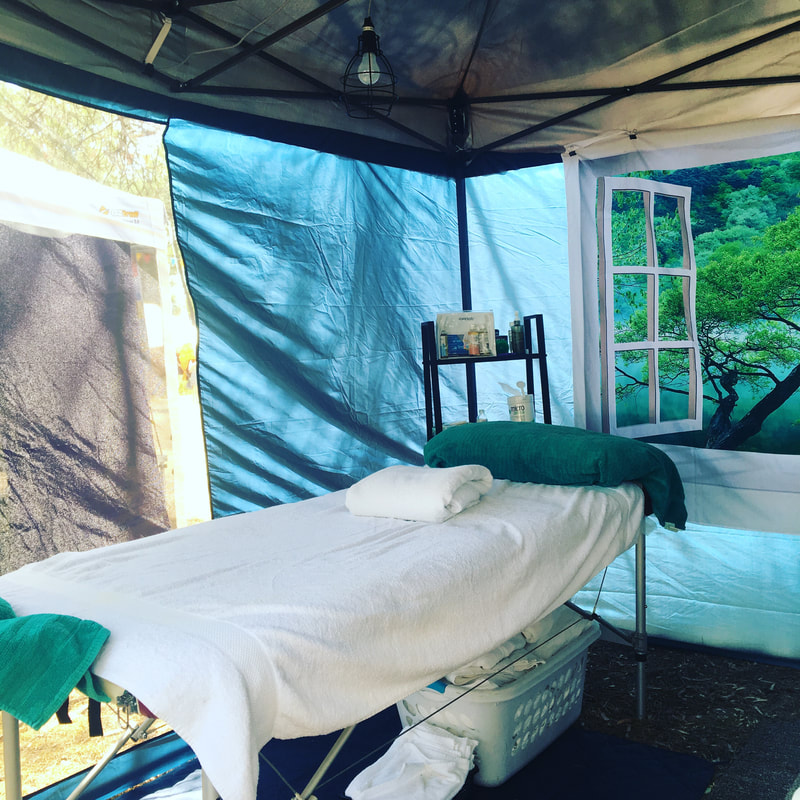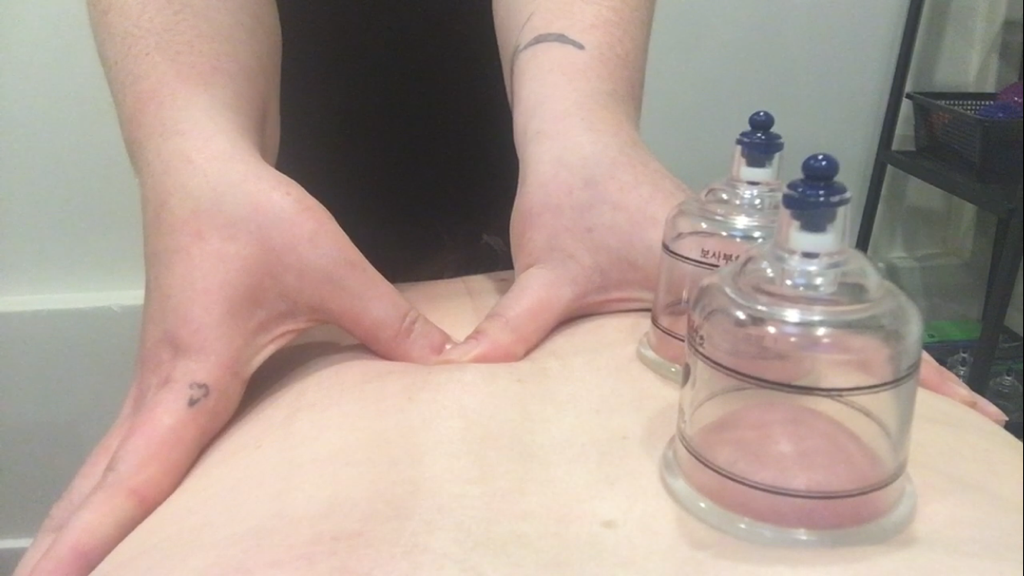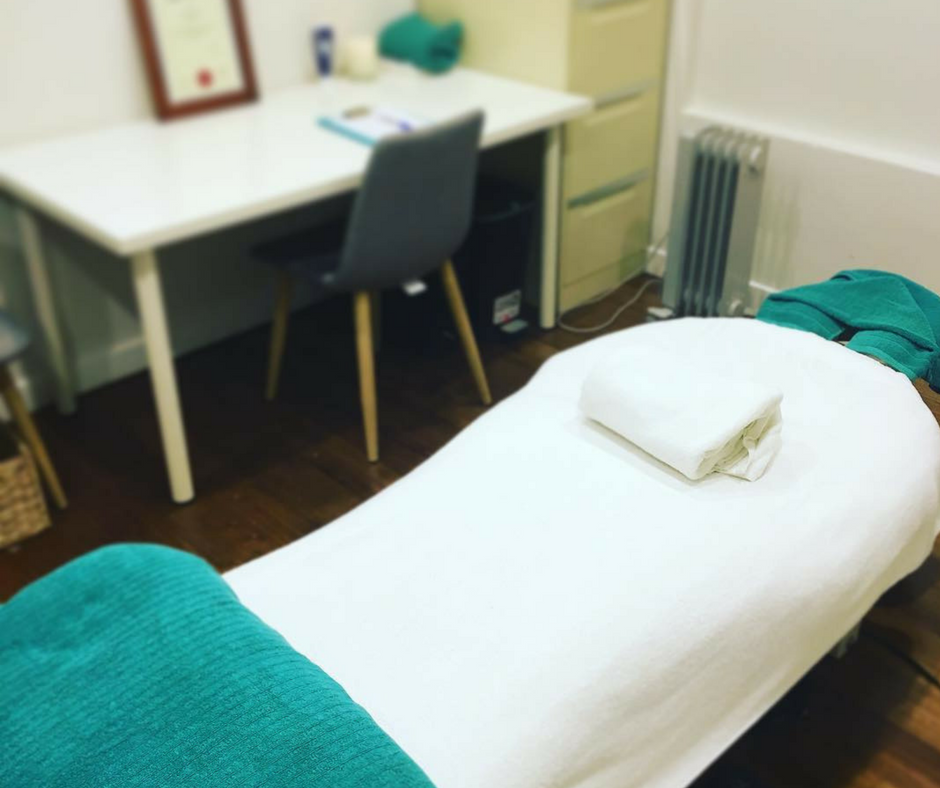|
Have you ever had a massage at a day spa before? If not, you might be wondering whether a massage at a spa is similar to a massage you receive in a clinic setting. One of our myotherapists, Emily, has experience in both a day spa setting and a clinical setting. So today, she’s sharing with us the similarities and differences, as well as why you might opt for one over the other. Why you seek out a treatment
For the most part, people who seek out a spa massage treatment want to feel great. They want to enjoy a massage that relaxes them, but usually aren’t looking for any other outcome. On the other hand, people who seek out the services of a remedial massage therapist or myotherapist are looking for a specific outcome. When you book remedial massage or myotherapy, you generally want to alleviate symptoms such as pain, or at least prevent future pain and flares. The aim of a massage treatment As the reason for seeking treatment is different, it makes sense that the aim is also different. A spa massage therapist will aim to give you a massage treatment that feels good, relieve tension and helps you to feel more relaxed. A remedial massage or myotherapy session in a clinic will have specific goals and outcomes. This is because you will generally come in with an aim of having pain or an injury treated, managed and/or prevented. We will put together a treatment plan based on your needs and goals, and review that regularly. In a spa massage, there may be other treatments or tools involved such as hot stones or aromatherapy. Again, these are focused on relaxing you more and easing general stress and tension. On the other hand, remedial massage and myotherapy can involve a whole toolbox of techniques, depending on your needs. At Simple Wellness Myotherapy, we use dry needling, cupping, joint mobilisation, trigger point therapy, rehabilitation exercises and taping. Not everyone will need all of these in their treatment plan, but we can tailor your plan to your needs and goals. What to expect in a 60 minute spa massage Here is how a typical spa massage will run:
What to expect in a 60 minute clinic massage This is how a massage or myotherapy treatment runs at Simple Wellness:
Which is better – spa massage or clinical massage? It’s not really a competition because they are so different! If you’re just looking to treat yourself and enjoy a relaxing massage, there’s nothing wrong with a sneaky spa massage. Spa massage may also be preferable if you’re looking to have other beauty treatments. But if you’re dealing with pain, injury or significant tension, a clinical massage from a remedial massage therapist or myotherapist is best. Clinical massage is also better for preventing injuries and flare-ups of previous injuries and pain. Looking for a clinical massage? At Simple Wellness Myotherapy, we offer both remedial massage with our therapist Helvi and myotherapy with Emily and Mel. You can book an appointment with one of our practitioners here. Wondering why the clinic was closed at Ferntree Gully on the weekend? It was because I set up a pop up clinic at the Seven Sisters Festival in Mt Martha! My wonderful friend Mel from Your Myotherapy in Apollo Bay joined me to offer myotherapy and remedial massage treatments to the ladies at the festival, and we had a blast - even in the 38-40* heat! What is the Seven Sisters Festival? Its a 3 day weekend of workshops, classes, markets, food and connection. Think yoga classes, sound healing, singing, presentations, crafts, camping with your friends and a whole lot more!
The preparation time and effort was well worth it. We got to offer about 70 treatments over 3 days, and we were in high demand. We had info brochures available, and got to discuss myotherapy with a lot of interested ladies. Our most frequently asked question was - what IS myotherapy? I like to explain it in simple terms, so I usually explain it in relation to other treatments that people might be more familiar with: Its a treatment for muscle and joint pain or dysfunction that can have a lot of hands on time (like a remedial massage) and has a bunch of other tools and techniques to achieve very specific outcome goals for recovery and rehabilitation (similar to a physiotherapist) I had a great time, but I must say I am really glad to be back to the air conditioned comfort of my own treatment room! Did you miss me? I'm back to normal clinic hours again so you can book in to see me when you need me. One thing many clients ask me is ‘is myotherapy painful?’ Some people haven't experienced therapeutic massage techniques, and others have seen remedial massage therapists and experienced pain during or after treatment. This is something that I’m very passionate about. So I thought I would share my opinion about whether myotherapy should be painful, and who it suits.
The difference between myotherapy and other massage styles There are many different types of massage and bodywork. Most people are familiar with Swedish massage and remedial massage. But myotherapy is quite different from these common forms of massage. Generally speaking, Swedish massage is known as the ‘soft’, relaxing form of massage. The focus is overall relaxation of the body. A Swedish massage follows the same routine for every person, moving in gentle, rhythmic ways that help calm and relax the person in a way that feels wonderful. Remedial massage is sometimes known as ‘deep tissue’ work. A remedial massage can be great for relieving widespread tension and pain throughout the body, and for maintaining good muscle health. A remedial massage is hands on, working the muscles in the region that the person is experiencing pain. Many people might think that in comparison to these two, myotherapy has to be painful, deep work. I recently overheard someone tell a friend "oh, you don't want myotherapy, its like a really really deep remedial massage, it hurts like hell!" However, myotherapy can be gentle – it doesn’t have to hurt to be effective! Swedish and remedial massages tend to cover a broad area, while myotherapy focuses on the specific and tailored management of pain and dysfunction to support people during rehabilitation from pain or injury. So if you experience specific pains or a specific condition that affects the muscles and joints, myotherapy might be the best option to support you. The greatest advantage of myotherapy is that it can be adapted to anyone’s needs. If you have chronic pain and are very sensitive to touch, we can relieve tension using gentle techniques that won't set off alarm bells in your nervous system. But if you enjoy a good trigger-point release, we can accommodate that as well! Every persons treatment plan will look different, depending on what your body needs most. What happens during myotherapy You might think that myotherapy is just another type of massage. But in fact, myotherapy is a lot more holistic in the approach to caring for your muscles and joints. Massage is only one aspect of myotherapy, and within it, there are several types that can be used. Myotherapy includes use of extra skills including:
So in fact, myotherapy involves developing a full personalised treatment program that is specified to the condition you have and how your body is best supported. It’s not just about relieving the pain – it’s about rehabilitating the body so that you can heal whatever is causing the pain. The right myotherapist makes all the difference At Simple Wellness Myotherapy, I enjoy helping people who experience chronic pain to manage their condition. So I know how important it is to help relieve the pain they experience without inflicting more pain during or after treatment. There is a very strong policy against ‘no pain, no gain’ in my clinic room! If you want to experience how gentle and supportive myotherapy can be for your body, make sure you book an appointment today. This is one of those questions I get asked really often. Myotherapy is still a fairly new term in the health world, its been picking up in popularity in Australia over the last 15 years or so. My path into Myotherapy began in Remedial Massage, and I see a lot of similarities between the two modalities, as well as the differences. The Similarities
The Differences
A Myotherapist is a great option if you have an injury, a specific pain area, a recurring or severe pain, or a condition that requires more in depth knowledge and training. Plus a lot of Myotherapists, like myself, came into Myotherapy through a Remedial Massage background. By seeing a Myo for your pain you are likely to get a great range of techniques that feel good and are effective at relieving your pain. For more widespread aches, pains and tension that are a little annoying but not stopping you from getting on with your day, a Remedial Massage can do the trick. If you have a question, I'd love to answer it! Drop me a line, or feel free to call in in person to the clinic at Balanced Life Health Care in Ferntree Gully.
Would you like to get your treatment plan started? Book your first appointment online. If you've never seen a myotherapist before, it can be intimidating to go into your first appointment! But I promise I don't bite. If you're not sure what to expect, let's have a look at what you need to know about your myotherapy appointment. Your First Myotherapy Appointment
Firstly, you'll find your way up to the clinic. Once I greet you in the waiting room, I'll ask you to fill out a form about your health history. In order to personalise your care, I'll need to know about any chronic conditions, injuries and other health history information. For me to give you the safest, best care, I need to know:
All of these factors can impact on which treatments are safe for your body. So please let me know before we commence! Then, we'll head into my lovely little clinic room. We'll sit down and have a chat about what your goals are for the treatment. Now it's time for treatment. I'll let you know which body parts I need exposed, and will pop out while you get changed. Then, I'll proceed with treating the areas you've told me about. Your treatment will depend on your goals and health. Some of the treatments you might experience include:
If you're not sure about the treatment, just ask! I'm happy to explain to you what each treatment entails. But if you prefer to chat about your kids or your plans for the day, that's fine too. At the end, we'll have a quick discussion about a care plan. I'll let you know if you need to do some at-home care, and when it's best to book in again. This all depends on what I've learned about your body throughout your treatment. Your Follow Up Myotherapy Appointment Your follow-up appointment will be a bit shorter, as I already know your health information. However, if you feel like you need some extra TLC, you can book a long follow-up. Firstly, I'll ask about how you felt after your treatment. If you've had any improvements or setbacks, let me know! This helps me to tailor your treatment further. I'll also ask how your at-home exercises or stretches went if that was part of your care plan. Then we'll jump straight into treatment from there. Again, this will depend on your needs. At the end, we'll review your care plan, and discuss any further treatment or at-home care. What To Remember For Each Myotherapy Appointment
Still not sure about your myotherapy appointment? Send me a message and I can answer any questions you have. Ready to book your first myotherapy appointment? Head to the booking page.  What Is Myotherapy? Your Questions Answered A common question I hear from clients and friends is: 'what IS myotherapy?' Many people think it's just massage. Others might be confused about the difference between myotherapy and other physical therapies. So today, I thought I'd share a little about what it is I do. What is myotherapy? Myotherapy means 'muscle therapy'. Simply put, it's about treating the muscles to restore function and optimise the health of each muscle. There's also treatments that work on the supportive tissues, like your ligaments, tendons and other connective tissue. When performed correctly, it can be a very relaxing form of care. I pride myself on offering treatment that isn't rough or painful, so it doubles as a treatment AND a massage! Myotherapists are trained in anatomy, physiology, hands-on treatment, assessment of the body, corrective exercise, and how to utilise breaking research to support client health. Who is myotherapy for? Myo can be appropriate for pretty much anyone! The good thing about myotherapy is that the treatment can be adapted to someone's age, fitness level, pain level and lifestyle. So if you're worried that you're:
What can myotherapy help with? Wondering if myo is useful for your needs? Here are just a handful of conditions that it can benefit:
It can also be used as a form of preventative medicine. As I will be regularly assessing the state of your body, it means we can monitor how healthy you are. If you start to have problems, we can intervene early and prevent further injury or damage. My personal interest as a myotherapist is working with clients who are managing chronic pain of any kind. However, anyone looking for healthy muscles is welcome on my treatment table! Types of treatments in myotherapy A lot of people assume that myo only includes massage. But there's actually many different techniques used, depending on the client's needs. During an appointment, you may experience:
You may also be prescribed some at-home exercises, stretches or other care. This is so that your muscles stay happier for longer! Do you have questions about myotherapy? Feel free to leave them below, or send me a message. Ready to get your myotherapy on? Head to the booking page and snag yourself an appointment. |
Meet Our Team
We have a team of great practitioners available 7 days a week at our Rowville clinic. Archives
July 2024
Categories
All
|
Got a question about Myotherapy?
Contact Mel by phone, email or Facebook
|
Simple Wellness Myotherapy & Remedial Massage Clinic
Shop 12B 150 Kelletts Rd Rowville VIC 3178 |
Phone us on
03 8204 0970 |






 RSS Feed
RSS Feed